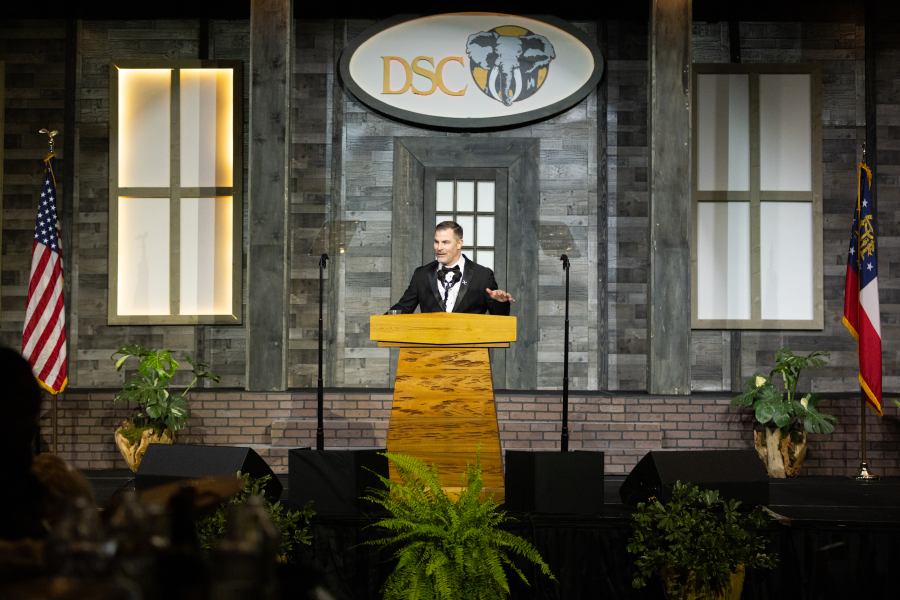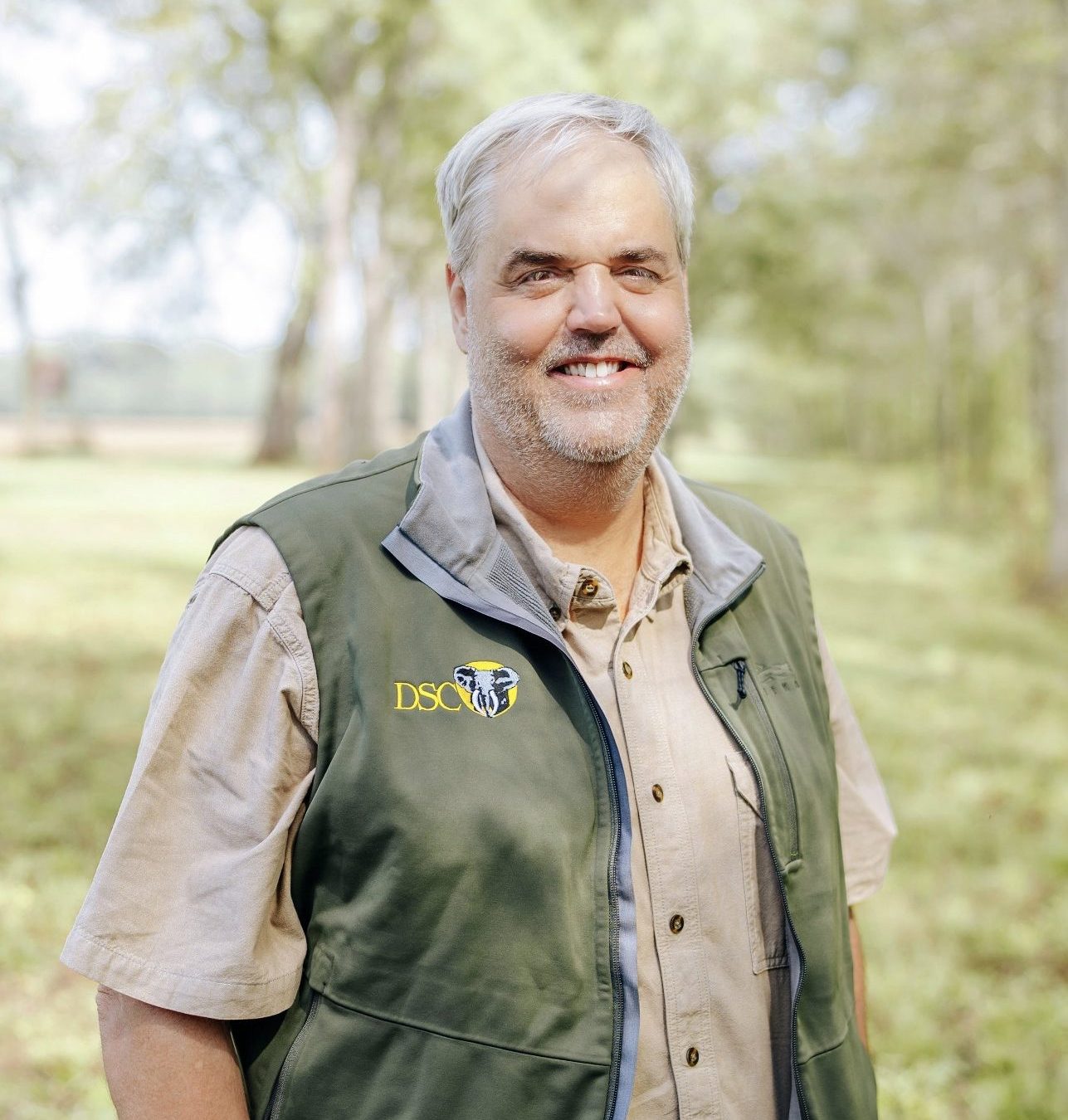It’s HOT where I live in Texas about an hour west-northwest of Houston. Daytime temperatures and humidity levels are essentially the same numbers, in the high 90’s. This past spring and early summer we have fortunately receive a goodly amount of rainfall. Much of Texas has recently been blessed with rain, but we are a continually “thirsty” State. Some areas are still in a severe extended drought. Thankfully the primary areas I hunt for whitetails, now in the northern and eastern half of Texas, have had a great antler growing and fawning season.
After three years of being part of an expansive hunting lease west of San Angelo in the western part of Texas, I decided to drop that lease and help put together another, although a much smaller property. This one is in far northern Texas, west and north of Fort Worth, and half as far from home as my previous lease. The northern border of the property is the Red River separating Texas from Oklahoma. The acreage has been very sparingly hunted for whitetails. On either side of the property on the Texas side are properties best describe as only occasionally hunted for deer. Immediately across the Red River, over a mile of it on our lease, in Oklahoma is a large ranch which is only occasionally hunted.
Several years ago I hunted a large ranch several times in Oklahoma only a couple of miles down-stream of our current lease. That property had some really good, large-antlered bucks. I shot two deer there that both gross-scored over 170 Boone and Crockett.
The new lease is in a one-buck limit country. I intend to be quite selective before pulling my trigger.
The property has woods and brush, but also a lot of open areas planted in winter forages; wheat, oats, triticale, winter peas and the like. It is primarily a cattle ranch and provides winter grazing for stockers. Part of it has a cow-calf operation. The winter grazing for cattle provides a tremendous amount of quality green fields for whitetail deer. The lush cool season growth attracts deer from considerable distance.
With the approach of July area whitetail bucks are still growing antlers. Antler development will finish in August and be totally completed by early September. Soon after, the velvet will be coming off, possibly a bit earlier with individual bucks. That said, antler development is now far enough along so we can determine how big racks will be. It is time to start doing some serious scouting.
My approach to scouting is a bit different compared to many. While I appreciate trail cameras producing still photos and video footage, including real time. I like the idea of doing things the old way, scouting in person, on foot. I seldom ever use trail cameras and like being surprised by what I see come hunting season.
I am someone who does not give bucks names. I have in the past, but only to provide a good story about a particular buck and then named only after I had taken the buck. “Tobe” was such a deer. I hunted him for several years before I got a chance at him. When I finally shot him, based on centum aging (like counting rings in trees), it was determined he was 13 ½-years old. I named him “Tobe” after I had taken him in honor of a gentleman I met when I was quite young. I knew that individual for forty years. During that time, he never seemed to look a day older. Tobe, when I shot him, was a basic 10-point with two kickers at the base of his antlers, and he had three drop-tines. The first time I had seen him I was conducting a helicopter survey. He looked very similar when I shot him seven years later.
My personal summer scouting amounts mostly to “on the ground” efforts, looking for trees that appear to have been rubbed for several years and finding scrapes from previous seasons. As a hunter with several decades of experience and a professional wildlife biologist I know some bucks return year after year to rub on the same tree. They also quite often return year after year to use the same scrapes. I look for these during the summer, then will not return to the immediate area until I am ready to hunt that specific area at the beginning of the rut before it is fully underway. Once I return, I sit down next to a tree where I can see both rubs and scrapes, and if necessary use surrounding underbrush to quickly construct a natural ground blind.
Our Red River lease is relatively narrow and long, a mile wide and better than a mile long. There are some resident deer on the property, including bucks of varying ages. Visiting with the landowner and his son, they explained their green fields draw many deer from near and far, including numerous big antlered bucks that do not show up on the property until the rut begins to chase the many does that make the property home when there is little other green forage available.
Setting up trail cameras prior to the beginning of the rut will not show bucks that only come to the area when the rut starts, and even if trail cameras show a large-racked mature buck there is nothing written in stone he will be there the following day. One of the reasons I seldom use trail cameras.
My plan is to hunt the property opening weekend in early November, mostly to do some on the ground scouting to determine where the does live and from which direction and trails they come into the planted fields. But also, just in case a monstrous buck happens by. I will return to seriously hunt when the rut is beginning to start. For rutting information, I will rely upon the landowner who lives on the property to provide me with information, current and from his past experience. He and his son have told me about a couple of bucks that showed up briefly last year when the rut started. They stayed two days and then were not seen again until a couple of weeks after the hunting season closed. Then they were spotted standing on the Oklahoma side of the Red River.
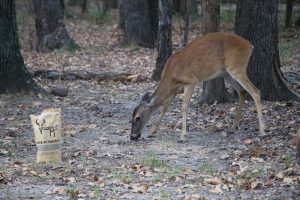 Something else I will do during my next summer scouting trip in late July or early August. There are several thickets on the river bank, about three acres each. I plan on cutting a winding trail into two of these. In the center I will clear a plot about sixty-feet by forty feet, then create another winding trail out of the thicket to the river. In the clearing I will pour a couple sacks of Vineyard Max to start baiting deer to that particular spot. Please understand, baiting is legal and an accepted method of hunting deer in Texas. I have made arrangements with the landowner to refresh these sites once a week with Vineyard Max (comprised of ground grape skins, cracked corn and rice bran which not only attracts deer but is also nutritionally good for them in terms of energy).
Something else I will do during my next summer scouting trip in late July or early August. There are several thickets on the river bank, about three acres each. I plan on cutting a winding trail into two of these. In the center I will clear a plot about sixty-feet by forty feet, then create another winding trail out of the thicket to the river. In the clearing I will pour a couple sacks of Vineyard Max to start baiting deer to that particular spot. Please understand, baiting is legal and an accepted method of hunting deer in Texas. I have made arrangements with the landowner to refresh these sites once a week with Vineyard Max (comprised of ground grape skins, cracked corn and rice bran which not only attracts deer but is also nutritionally good for them in terms of energy).
Older mature bucks tend to live in what they consider “safe” areas. Such mini-sanctuaries fit perfectly into the category just described. I will create natural ground blinds on the north and south side of these thickets open areas so I can hunt them regardless of the wind direction, and, so I will not be facing the rising or setting sun.
I am extremely fortunate to be able to hunt another property, the Cotton Ranch, twice the size of the lease I am on. The ranch is comprised primarily of creek bottoms and uplands, lots of hardwoods, with many thickets. I am setting up several thickets basically the same way as my lease and here quite a distance from existing food plots and feed areas. On the Cotton my openings will be larger. I will look for existing natural openings in thick woods, trim underbrush so there are several shooting lanes, set up natural ground blinds so I can hunt those areas regardless of wind direction. And I will bait these areas with Vineyard Max.
I will hunt these areas throughout the fall and winter. The latter property is under Texas’ Managed Land Deer Permit which allows hunting with a firearm from the opening of archery season through the last day of February. During the past three years I have hunted the property I have taken one buck, a mature 6-point and several does. In the past I have passed up a number of big antlered young bucks. These should be five to seven-years old this fall. I plan on taking a mature buck there this fall, if I can find one.
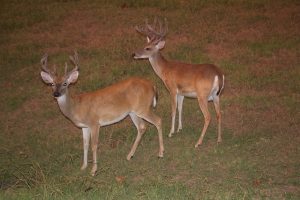
On both properties I will do my best to rattle up bucks, hopefully including one I will want to put my tag on. But I will also hunt without my rattling horns including the thicket sanctuaries I described. On both ranches this year I will be looking for the biggest mature buck I can find.
My other intention on these properties is to also take several does per our established management programs. My wife, I and our family (married daughters and grandchildren) dearly love delicious venison. In the course of a year we “to go through” numerous deer. I do not like being without venison in my freezers.
As to firearms, I intend to use handguns and rifles. My handguns are Taurus Raging Hunters, chambered in .44 Mag and a .454 Casull. Both are topped with long-eye relief scopes (which I have owned for many years), shooting Hornady Custom 240-grain XTP. With these combinations I feel comfortable taking shots at whitetail out to a hundred yards with the .44 Mag and out to 150-yards with the .454 Casull. Their accuracy with Hornady ammo is amazing. I will have one or the other with me every time I hunt. If the situation allows I will shoot my deer with one of these handguns.
My three primary rifles will be two 7mm PRCs. One started as a Mossberg Patriot Predator, and now has a custom 20-inch TVP Avient Rapid Heat Releasing Barrel, topped with a Stealth Vision 5-20×50 Illuminated scope, shooting either Hornady Precision Hunter (175-grain ELD-X) or Hornady Outfitter (160-grain CX). Both loads are superbly accurate in that rifle. The other is a 20-inch barrel Mossberg Patriot Carbine 7mm PRC, using the same Hornady ammo. It will be topped with a Stealth Vision SVT 3-18×44 scope. The third rifle is a Rossi R95 chambered in .30-30 Win, topped with a Stealth Vision SVT 3-18×44 scope and shooting Hornady LEVERevolution 160-grain FTX ammo. By the way all Stealth Vision scopes are equipped with operational light reticles, truly important when light conditions are less than ideal!
With both 7mm PRCs I feel comfortable shooting at distances out to 600-yards and beyond, if necessary. Although I will do all things possible to get within a hundred yards or less before taking a shot.
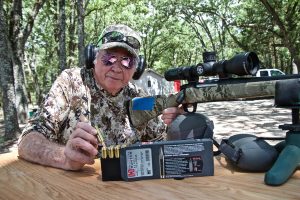
I plan on spending as much time as possible on my lease and also on the Cotton Ranch. I also have guided hunts for whitetail on the Choctaw Hunting Lodge in Oklahoma; Carmen Mountains whitetail and aoudad in far western Texas in the Chinati Mountains with Steve Jones with Backcountry Hunts and then in January 2026 hunting Coues whitetail with the El Durangueno Ranch in Mexico.
It will be a busy fall. I will not be able to do much scouting on the other hunts I have planned. There I will depend heavily on local intel provided by the guides and those who live on the property. I learned a long time ago not “to guide the guide!”
Until it is time to go hunting, after I clear some openings in dense thickets, cut some trails through thick cover for deer to follow, knowing deer, even the wariest and wiliest of bucks, will follow the path of least resistance, I am going to spend time at the range becoming ever more familiar with the guns I’ll be hunting with this fall. I will shoot for accuracy from a solid bench, but also from shooting sticks and other rests, same as those available hunting.
Summer is here and I’m wishing my life away for the Fall hunting seasons.

